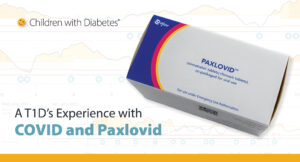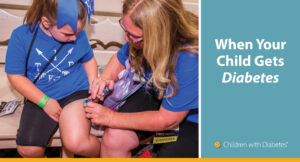Clinical Director
Taking Diabetes Back to School
Kids often say things such as, “I never get to do (insert something that they probably actually get to do all the time)” and may even ask the adults in their life why they are not allowed to do certain things. But if your child has diabetes, and they are being told “no” by someone at school to treating a blood sugar, this is a huge problem. Luckily, there are protections in place in the U.S. to keep children with diabetes safe in schools. The Americans with Disabilities Act of 1990 is a law that helps prevent people with disabilities […]
Read MoreTraveling with Diabetes
Diabetes shouldn’t get in the way of living the life you want to live, and traveling is no exception. There are some important tips and tricks that can help keep you safe while traveling and ensure that you are able to enjoy your journey. Planning Ahead This is really the biggest piece, and although you may not be someone who enjoys planning, with diabetes in the mix, the extra planning can really make a big difference. How far you are traveling can also play into your preparation, as well as how close you will be to medical facility or medical […]
Read MoreDiabetes Distress
We often talk about how diabetes can be overwhelming, and there are some different terms that can help identify exactly how diabetes is impacting someone’s mental health. Some people experience depression with diabetes, others experience diabetes distress, and some experience full on diabetes burnout. Identifying what type of mental health issue is present is crucial to be able to receive the appropriate treatment. What is Diabetes Distress? Diabetes distress is a term that describes the negative emotional burdens associated with living with diabetes.1 This includes worries or fears that people with diabetes have, such as anxieties about high or low […]
Read MoreAll About your Gut Microbiome
The human body is incredible when it works properly. There are so many different systems that intertwine, depend on one another, and work together to help the body function optimally. Something that has gotten researchers’ attention more recently is the intestinal microbiome, or the tiny organisms that exist inside your digestive system.1 This is often referred to as the “good bacteria” that helps with various processes in the human body. There is a lot of research underway to try and figure out exactly how the microbiome affects the body, and what things affect the microbiome. What does the microbiome have […]
Read MorePregnancy with T1D
Pregnancy is something many young women with diabetes worry about, and often these anxieties start at a much younger age than they plan to try to conceive. It’s common for healthcare providers to share with their patients the many things that can go wrong in pregnancy with diabetes. Their motivation is to help ensure women with diabetes conceive only when it is safest for mom and baby. But these stories can also create anxiety for women with diabetes. While it is important to plan a pregnancy properly, the added anxiety may not be as beneficial as the providers intend. Luckily, […]
Read MoreYes, I can eat that: Answering Diabetes Questions
When someone learns you have diabetes, one of the first things they’ll do is ask a question based on a common misconception, or myth. This should have been listed on the job description when we took diabetes as our second full time job, but of course, it was not. And, by the way, none of us chose this job and would give it away if we could. Here are some of the most common questions I have gotten about diabetes and some tips and tricks for dealing with them as people with diabetes (PWD) and loved ones of PWD. I […]
Read MoreA T1D’s Experience with COVID and Paxlovid
Those of us who have been very cautious throughout the pandemic are seeming to catch the more recent variants of the SARS-COV-2 virus, also known as COVID, myself included. I knew it was only a matter of time, and the timing for me was a big bummer because it came right before Friends for Life Orlando. So, for the first time since FFL Orlando 2000, the very first Friends for Life, I did not attend the conference. I hope that sharing my COVID experience, as well as my experience with the medication, Paxlovid, as a person living with type 1 […]
Read MoreWhen Your Child Gets Diabetes
One of the biggest decisions in a person’s life is whether or when to become a parent. If you decide to become a parent, one of the things you wish for is a healthy, happy child. Sometimes, your child is healthy for most of their life aside from the normal colds, flus, and now COVID-19. But sometimes your child gets diagnosed with a chronic illness like type 1 diabetes, and it turns your whole life upside down. Where Do You Start? There are many important basic skills that should be top priority to learn within the first week of diagnosis. […]
Read MoreTips on Adjusting Insulin
Earlier this year, we published an article about Looking for Glucose Patterns about how to identify patterns in your glucose levels. The follow-up is what to do when you find certain patterns, whether it’s adjusting insulin doses, changing the timing of insulin dosing, or reaching out to your healthcare team because you need guidance; we hope to help you feel more confident and comfortable in navigating pattern management. As you become more experienced in your diabetes journey, you should find it easier to self-manage. If you’re earlier in your diagnosis or have not gotten any instruction on how to adjust […]
Read MoreSometimes Diabetes Can’t Take the Heat
It’s summer for those of us in the Northern Hemisphere, and with the new season comes the usual increase in temperature. Add climate change and the continuing rise in temperature on our planet into the mix, and it creates some very concerning risks for people with diabetes and other chronic conditions. These risks are even more concerning for more vulnerable populations with diabetes, such as children, elderly, and people without access to cooler temperate environments. Heat Exposure and Hospitalization for People with Diabetes Given that this is something that we will not be able to avoid in the near future, […]
Read More









